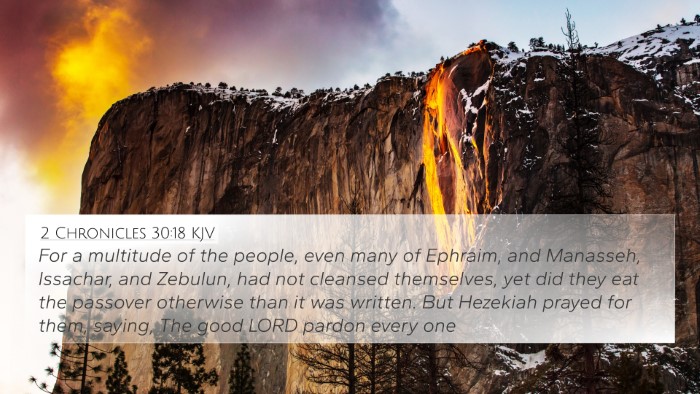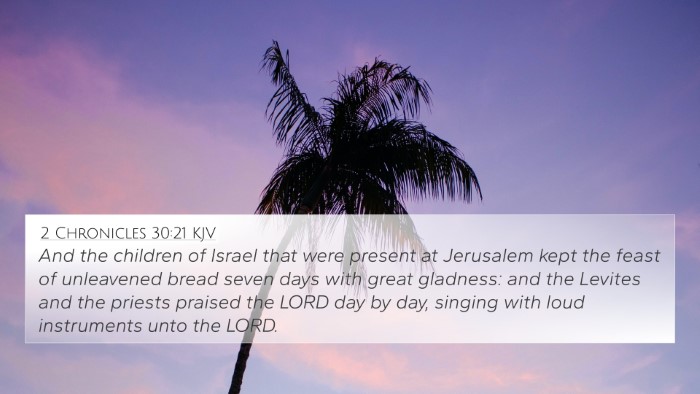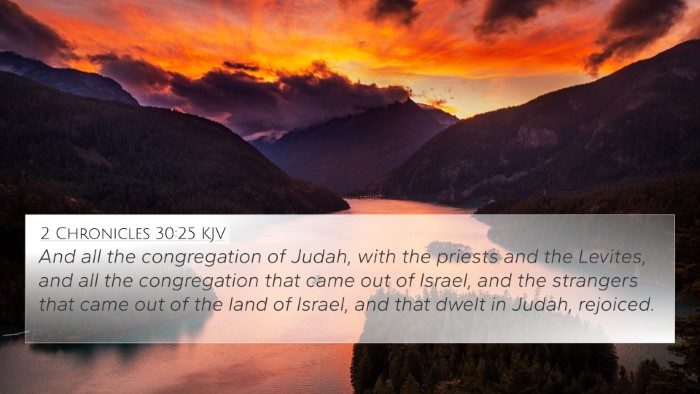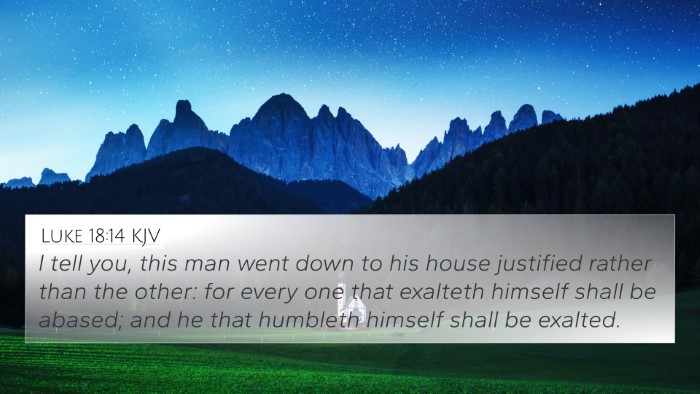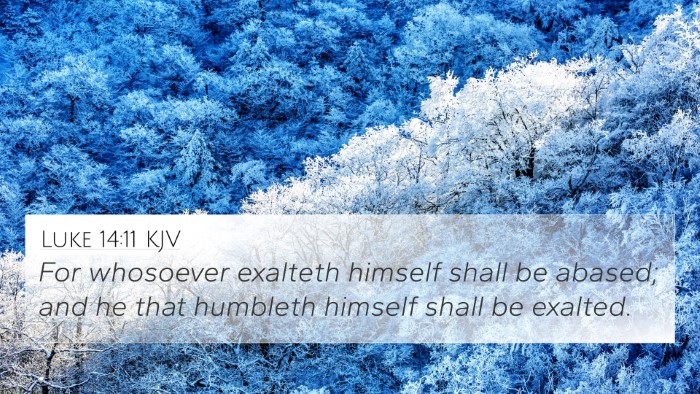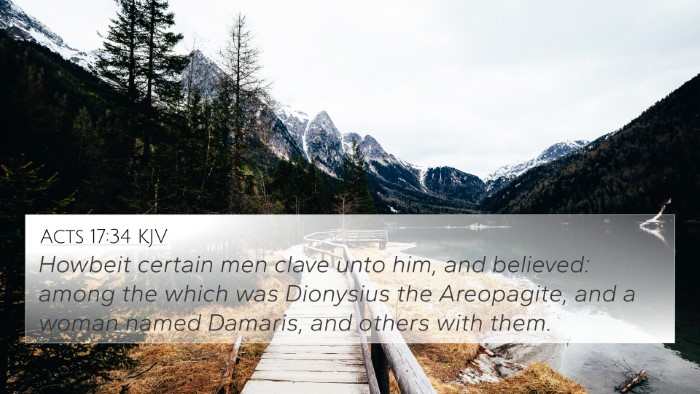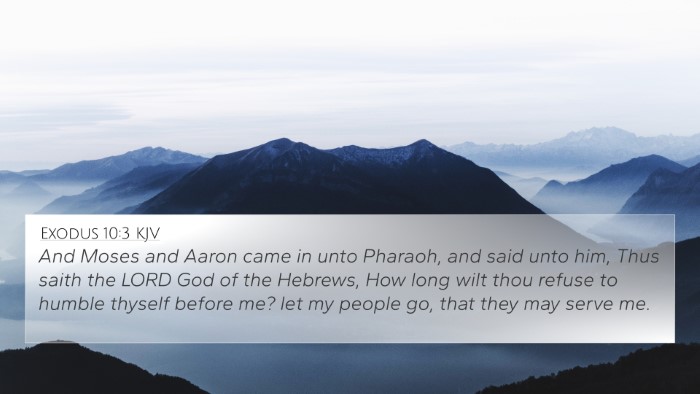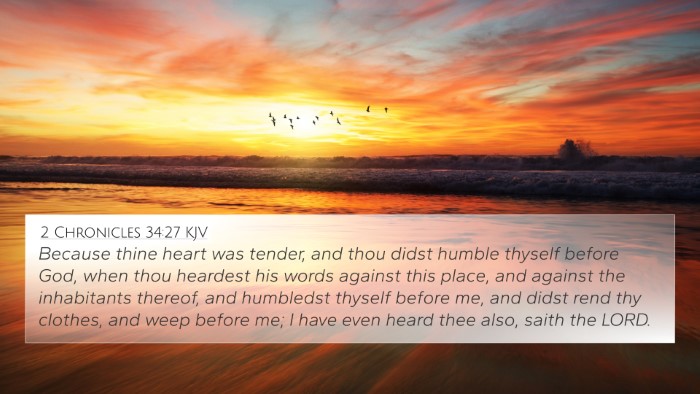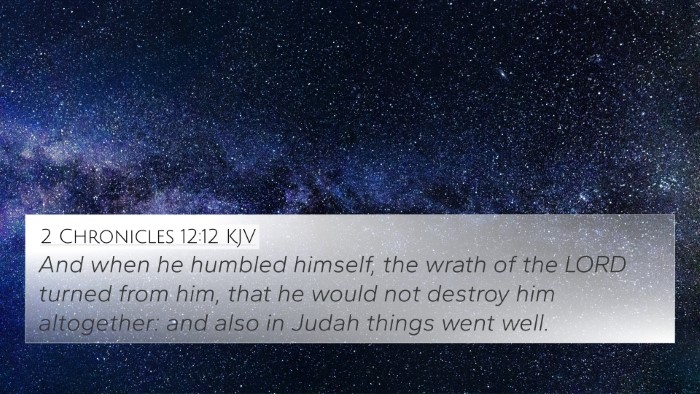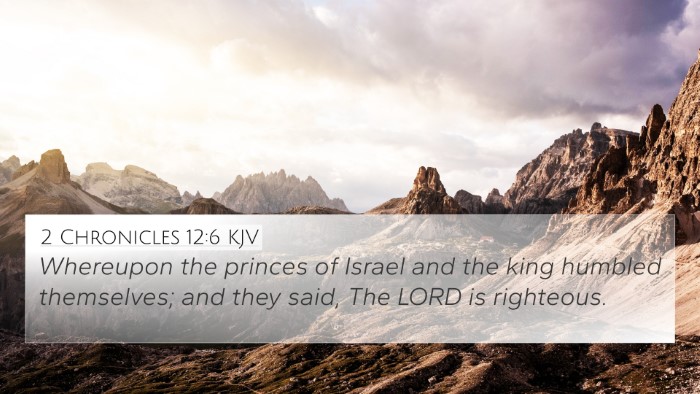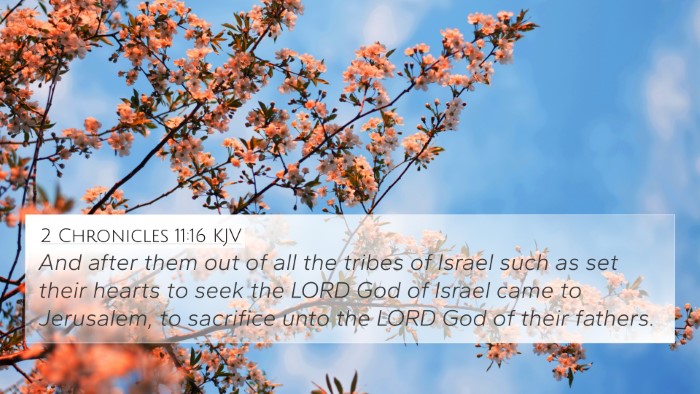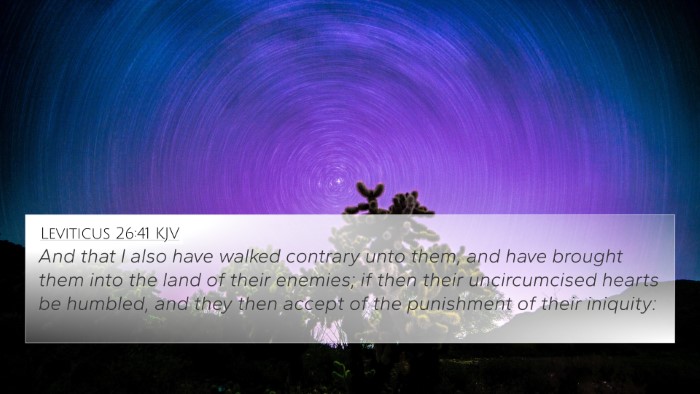Understanding 2 Chronicles 30:11
2 Chronicles 30:11 states: "Nevertheless, some people from Asher, Manasseh and Zebulun humbled themselves and went to Jerusalem." This verse highlights a crucial moment during the reign of King Hezekiah, where despite widespread apathy, a remnant chose to return to God.
Summary of Insights from Commentaries
Combining insights from public domain commentaries by Matthew Henry, Albert Barnes, and Adam Clarke, we find a rich understanding of the verse, which emphasizes humility, repentance, and willingness to return to God against a backdrop of apostasy.
Matthew Henry's Commentary
Matthew Henry notes the significance of those from Asher, Manasseh, and Zebulun. He remarks on their humility and the importance of a heart willing to return to God, highlighting that the journey back often requires personal sacrifice and an acknowledgment of prior failings.
Albert Barnes' Analysis
Albert Barnes elaborates on the socio-political context in which these tribes opted to turn back to Yahweh. He emphasizes their act of humility as a crucial spiritual step and suggests that the willingness to seek God can lead to blessings. Barnes connects this humility to the larger concept of divine mercy, indicating that God always welcomes the repentant heart.
Adam Clarke's Exegesis
Adam Clarke provides further cultural context by explaining the significance of the Passover and how those returning were likely responding to Hezekiah’s invitation for repentance. Clarke sees this verse as an example of how divine mercy can be extended even amidst a fallen society when individuals respond positively to God’s call.
Thematic Connections
This verse is linked with several overarching themes within the Bible, including:
- Repentance: The act of humbling oneself is a recurring theme throughout scripture.
- Divine Mercy: God’s willingness to accept those who turn back to Him is a significant motif.
- Community Restoration: The united action of the remnant signifies the power of collective faith.
Bible Verse Cross-References
For a deeper understanding and comparative Bible verse analysis, we can explore these related verses:
- Isaiah 1:18 - God invites His people to reason together and promises forgiveness.
- James 4:10 - Encouragement to humble ourselves before the Lord.
- 2 Chronicles 7:14 - A call for the people to humble themselves and seek God’s face.
- 2 Kings 18:1-6 - The context of Hezekiah's reforms and the desire for national restoration.
- Psalm 51:17 - God desires a broken spirit and a contrite heart.
- Acts 3:19 - Repentance leads to times of refreshing from the Lord.
- 1 Peter 5:6 - Exhortation to humble ourselves under God’s mighty hand.
Inter-Biblical Dialogue
This verse serves as a bridge to both Old and New Testament themes, where the essence of humility in returning to God remains pertinent. Here are points of inter-Biblical dialogue:
- Both 2 Chronicles 30:11 and Luke 15:10 illustrate how there is rejoicing in heaven over one sinner who repents.
- In Isaiah 55:7, the invitation to let the wicked forsake their ways complements the actions taken by those from Asher, Manasseh, and Zebulun.
- Matthew 23:12 relates to the concept of humility before God and the rewards it brings.
Tools for Bible Cross-Referencing
To study Bible verses that relate to each other effectively, consider using:
- Bible concordance - A comprehensive tool to find verse connections.
- Cross-reference Bible study methods - Techniques to delve deeper into thematic relations.
- Bible reference resources - Various guides that provide insights into scriptural links.
Conclusion
The message of humility and return to God encapsulated in 2 Chronicles 30:11 is timeless, inviting believers to engage in self-reflection while opening channels of divine grace. By understanding the connections between Bible verses, we gain richer insights into God’s character and His dealings with humanity.



